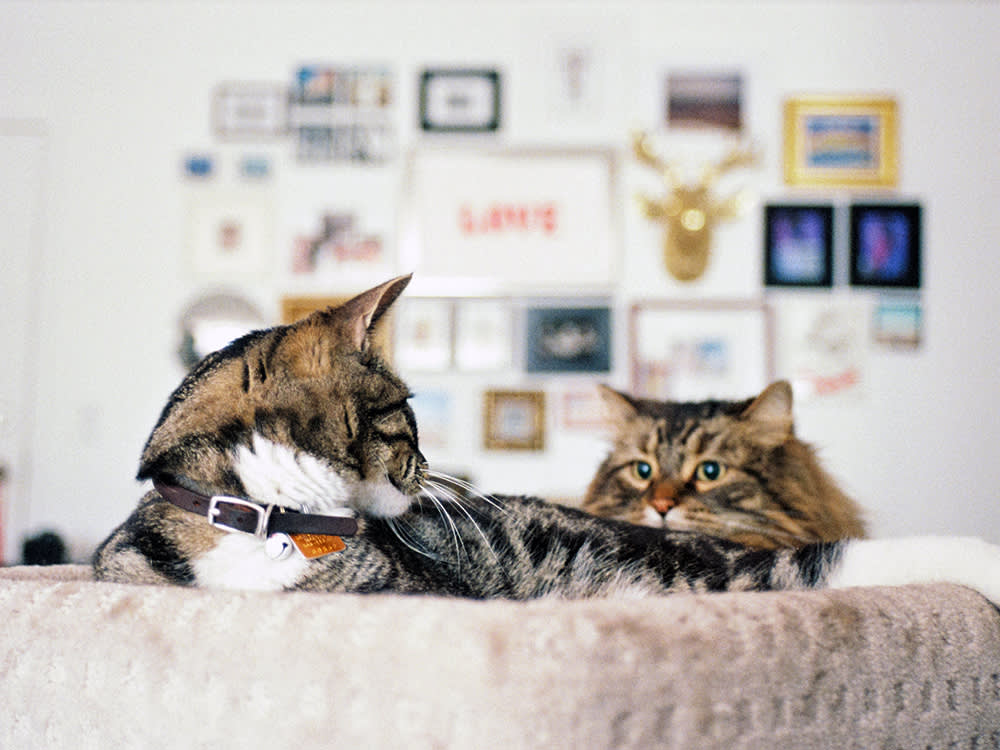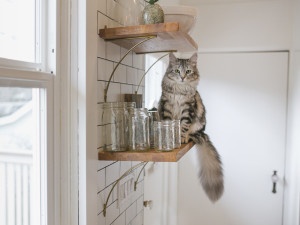Despite Their Mariah Carey Attitudes, Cats Know Each Other’s Names
They’d probably still say, “I don’t know her.”

share article
Cats are way smarter than people give them credit for.
One reason they’re underestimated is that unlike dogs, most cats aren’t super willing to show off their knowledge for our entertainment. They’re a little more discerning with their time. They could learn that trick if they wanted to, but they have a fake tree that needs scratchingopens in a new tab. They do know their own namesopens in a new tab, but coming when we call for them would require moving out of a sunbeam.
And get this: A study published in opens in a new tab found that cats learn the names of their cohabitants, too. That means they’re deliberately aloof, not empty-headed (think Mariah Carey’s “I don’t know her” momentopens in a new tab).
Only cats who live with at least two other cats were studied. Researchers showed the cats images of familiar cats on a monitor after hearing a name — half the time the name matched the cat’s real name, and half the time it matched the name of a different household cat. They tested two groups of cats: some who live in multi-cat households, and some who live in cat cafés. They hypothesized that cats who live in cat cafés would show fewer reactions to mismatched names, because they had less specific exposure to the other cats’ interactions with humans.
They were right; the household cats paid attention to the monitors longer when the names didn’t match, but the café cats didn’t. The longer a cat had lived with their human family, the longer they looked at the monitor when a name didn’t match. This indicates that the cats’ expectations were subverted, which means they expected to hear their fellow feline’s real name.
So, scientifically, your cat probably knows their counterpart cats’ names, even if they prefer to occupy opposite sides of the apartment. Cats, after all, will be cats — as evidenced by the official scientific report, which clarifies: “One cat completed only the first trial before escaping from the room and climbing out of reach.”
Sounds about right.

Sio Hornbuckle
Sio Hornbuckle is a writer living in New York City with their cat, Toni Collette.
Related articles
![A cat sitting on a shelf with glassware.]() opens in a new tab
opens in a new tabWhy Do Cats Knock Stuff Over?
Your brand new iPhone, antique figurine, full glass of water—they will swat it off the table. A cat behaviorist explains why.
![Couple holding a white cat in their arms]() opens in a new tab
opens in a new tabHow to Introduce Your Cat to Your Partner
Take things slow, according to cat behaviorist Jennifer Van de Kieft.
![Black and White cat with its eyes closed laying on its back on a scarf]() opens in a new tab
opens in a new tabIs My Cat Happy?
In this excerpt from her new book, Purr: The Science of Making Your Cat Happy, animal behaviorist Zazie Todd shares science-backed insights into our cats’ moods.
![cat hissing under chair]() opens in a new tab
opens in a new tabCat Hissing: Fair Warning or Fighting Words?
Your cat’s hissy fit could mean Don’t test me or Let’s do this. We wouldn’t call their bluff.





